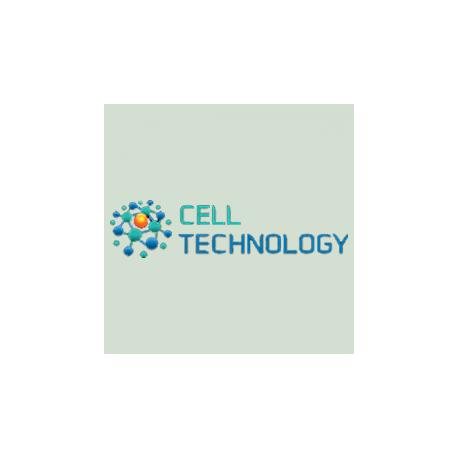 View larger
View larger
Fluoro AChE - a fluorescence assay for monitoring and detecting acetylcholinesterase activity in samples
CT-AChE100-2
New product
A kit to determine acetylcholinesterase activity in red blood cells, saliva, or lysates using the natural substrate, acetylcholine. In addition, the use of specific inhibitors can be used to detect Ache activity in a variety of samples.
Ao comprar este produto pode ganhar até 5 pontos de fidelização. Seu carrinho totalizará 5 pontos de fidelização que podem ser convertidos num vale de desconto de 20.00EUR.
Data sheet
| Size | 100 Tests |
| Storage Conditions | -20 °C |
| Shipping Conditions | Ships overnight (domestic), International Priority Shipping |
| Method | Fluorescence plate reader |
| Sample Type | Metabolic Assay |
More info
A kit to determine acetylcholinesterase activity in red blood cells, saliva, or lysates using the natural substrate, acetylcholine. In addition, the use of specific inhibitors can be used to detect Ache activity in a variety of samples.
Target Description: Exposure to chemical nerve agents, pesticides and certain drugs (anesthetics, cocaine and therapeutical drugs) reduces the activity of red blood cell (RBC) acetylcholinesterase (AChE). The RBC-AChE can be used as a biomarker to monitor suppressed and/or increased AChE function in the peripheral and central nervous system. Acetylcholinesterase (AChE) is one of the most important enzymes involved in nerve transmission. The enzyme is bound to cellular membranes of excitable tissue (synaptic junction, endoplasmic reticulum, etc). Acute toxicity to humans and animals through inhibition of AChE by both nerve gases and an important class of pesticides has long been a field of intensive scientific investigation. AChE inhibitors have also been used clinically as Alzheimer’s treatments (e.g., tacrine (tetrahydroaminoacridine) and are the subject of increasing interest in various disease processes and treatment strategies. However, both environmental detection of AChE inhibitors and development of modulators of AChE enzymatic activity as drugs have been hampered by the difficulty and complexity of the current assay methods. We have developed a highly sensitive, very rapid, extremely simple assay to determine acetylcholinesterase activity in RBCs, using the natural substrate acetylcholine. Additionally, by using specific inhibitors, the kit can be used to detect AChE activity in a variety of samples, including red blood cells, saliva, or lysates. A series of coupled enzyme reactions quickly translates the presence of active AChE into a change in the fluorescence of a quenched detection reagent.
Target Description: Exposure to chemical nerve agents, pesticides and certain drugs (anesthetics, cocaine and therapeutical drugs) reduces the activity of red blood cell (RBC) acetylcholinesterase (AChE). The RBC-AChE can be used as a biomarker to monitor suppressed and/or increased AChE function in the peripheral and central nervous system. Acetylcholinesterase (AChE) is one of the most important enzymes involved in nerve transmission. The enzyme is bound to cellular membranes of excitable tissue (synaptic junction, endoplasmic reticulum, etc). Acute toxicity to humans and animals through inhibition of AChE by both nerve gases and an important class of pesticides has long been a field of intensive scientific investigation. AChE inhibitors have also been used clinically as Alzheimer’s treatments (e.g., tacrine (tetrahydroaminoacridine) and are the subject of increasing interest in various disease processes and treatment strategies. However, both environmental detection of AChE inhibitors and development of modulators of AChE enzymatic activity as drugs have been hampered by the difficulty and complexity of the current assay methods. We have developed a highly sensitive, very rapid, extremely simple assay to determine acetylcholinesterase activity in RBCs, using the natural substrate acetylcholine. Additionally, by using specific inhibitors, the kit can be used to detect AChE activity in a variety of samples, including red blood cells, saliva, or lysates. A series of coupled enzyme reactions quickly translates the presence of active AChE into a change in the fluorescence of a quenched detection reagent.

